Youth Work with Displaced Ukrainian Youth: Recommendation and Insights for Practitioners in Ukraine and EU
1/2/20258 min read
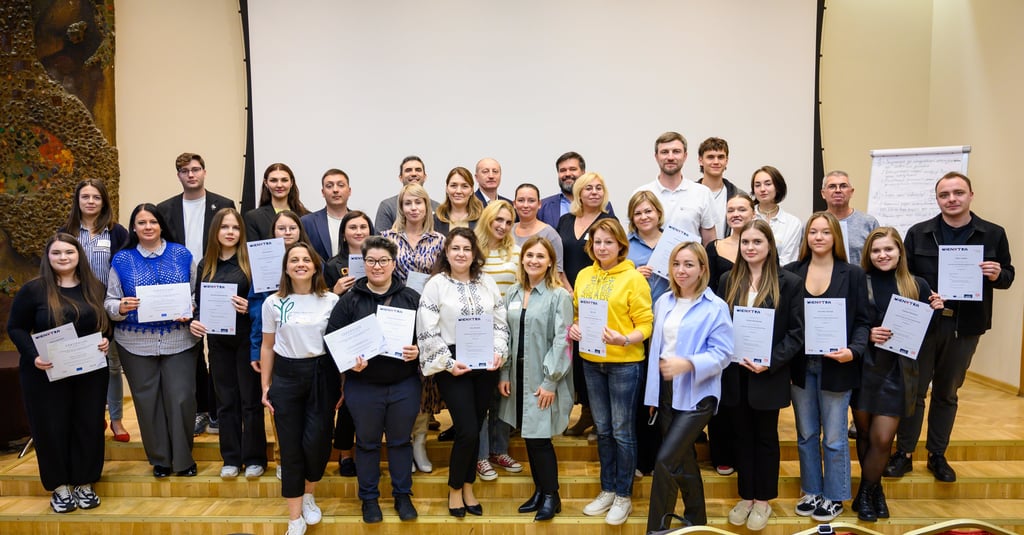

The full-scale invasion of Ukraine by russia in 2022 marked the beginning of a mass displacement crisis, uprooting millions of Ukrainians, including vast numbers of young people. Forced to adapt to life in unfamiliar regions or foreign countries, these young individuals face unique and profound challenges. The Youth Work with Displaced Ukrainian Youth project, initiated by the European Centre for Freedom and Independence (EUCFI) and WIENXTRA, contributed to resolving these issues. Funded by Erasmus+, the project illuminated the challenges of displaced Ukrainian youth and also equipped youth workers with the recommendations necessary to support this vulnerable demographic hoth in Ukraine and abroad.
The vision and context
"Since February 2022, millions of Ukrainian young people have been forced to relocate either internally or internationally. Supporting them is vital for both Ukraine and Europe," said Olena Bekreniova, co-founder of EUCFI.
According to the study The Impact of the War on the Youth of Ukraine, 82% of young Ukrainians reported losses due to the war. Surveys conducted in 2023-2024 indicate that 35% of older youth and 42% of youth aged 13-15 plan to leave Ukraine in the next 5 years.
Recognizing insufficiently effective communication, inadequate youth work infrastructure, and unaddressed needs of displaced Ukrainian youth, the project focused on fostering integration, capacity-building, and policy influence to enhance the overall quality of youth work.
The collaboration drew on successful European methodologies for refugee and war migrant support, especially Austria’s best practices, to create a replicable and scalable model. It aimed to empower youth workers and local communities to address the challenges of displaced Ukrainian youth while ensuring their cultural and national identity remains intact.
“International collaboration is key to empowering displaced Ukrainian youth. This project has strengthened partnerships and provided invaluable tools to rebuild futures,” said Olga Olefirova, co-founder of EUCFI.
Since 2022, youth work has become an important component of supporting the country during the war. Young people have been actively engaged in volunteering, social initiatives, and rebuilding efforts. By 2022, Ukraine had more than 300 youth centres. As of November 2024, this number has increased to 383, including 140 youth centres (13 regional, 107 urban, and 20 rural) and 243 youth spaces. These centres and spaces have resumed nearly all of their activities and continue to provide vital assistance to the civilian population.
While youth work in Ukraine has become a critical instrument of humanitarian support, focusing on infrastructure reconstruction, volunteering, integration of internally displaced persons (IDPs), and professional development, it faces challenges such as staff fatigue and shortages, highlighting the need for expanded support programs, including for Ukrainians abroad. The project addressed this issue as part of the recommendations on youth work.
Key project partners
The project was implemented with the participation of the partners actively involved in youth work, including:
The Ministry of Youth and Sports of Ukraine;
Association of Youth Workers of Ukraine;
Executive Committee of the Palanska Village Council, Ukraine;
Stand with Ukraine Foundation, Poland;
Exchanges Lorraine Ukraine NGO, France;
Descoberta de Momentos Association, Portugal.
Project framework and milestones
The project included the following activities:
March 2024 — preparatory meeting of the project partners in Vienna, Austria;
April 2024 — one-week training and study visits for a group of 36 participants from partner-organizations in Vienna, Austria;
July 2024 — online conference with interim results of the project;
October 2024 — the final two-day conference in Warsaw, Poland.
Preparatory meeting:
March 2024, Vienna, Austria
The project commenced with a preparatory meeting involving key partners from Austria, Poland, Portugal, and Ukraine. Representatives from NGOs, youth councils, and government agencies gathered to:
Identify the core challenges facing displaced youth;
Plan the subsequent training program for youth workers;
Exchange insights on youth work practices across participating countries.
Aldo Perez, an expert from WIENXTRA, emphasized the project's importance: “From the start, we recognized the necessity of understanding the specific needs of displaced Ukrainian youth and tailoring support accordingly.”
Key outcomes included a detailed roadmap for the training sessions and a deeper understanding of the structural issues faced by displaced youth and youth workers.
One-week training:
April 2024, Vienna, Austria
Held from April 21-27, the training brought together 36 participants from Ukraine, Austria, Poland, and Portugal.
The attendees were a diverse group of experts, including:
Central government officials, such as the Director of the Youth Work Department of the Ministry of Youth and Sports of Ukraine and two former Deputy Ministers of Youth Policy at the Ministry of Youth and Sports of Ukraine;
Local authorities in Ukraine, represented by the Head of Palanka Village Council, and members of the Departments of Youth and Sports Policy from Kyiv and Chernivtsi regional state administrations, as well as the Chairman of the Youth Council of the Volyn Regional State Administration and the Council on Internally Displaced Persons at the Transcarpathian Regional State Administration;
Leaders in youth work, such as the Head of the Association of Youth Workers of Ukraine, the Deputy Head of the National Youth Center of Ukraine, and over 10 certified youth workers from Ukraine;
Professionals from Plast, the largest international scout organization in Ukraine.
Most participants had extensive experience in youth work, ranging from 3 to 20 years. Besides, the majority of them had an experience of working with internally and externally displaced Ukrainian youth after March 2022.
Throughout the week, participants engaged in intensive sessions covering:
The characteristics and challenges of Ukrainian youth in Europe;
Challenges of internally displaced Ukrainian youth;
Strategies for working with displaced youth in open youth work settings;
The specific needs of internally displaced Ukrainian youth in Europe;
Drafting recommendations for youth work in Europe and Ukraine with displaced Ukrainian youth.
Key objectives:
Develop a unified understanding of the challenges faced by displaced youth;
Study and share cases of effective youth work practices;
Build a network of professionals committed to supporting displaced Ukrainian youth;
Draft practical recommendations for improving youth work strategies in Ukraine and in EU countries.
Training highlights:
Workshops and sessions: participants engaged in workshops on topics such as psychological support, cultural identity preservation, and creating inclusive youth spaces.
Study visits to Austrian organisations and youth centers including Youth Center Club Nautilus, Bahnfrei Waggons, Juvivo, Hemayat, Youth Info, MA 13, etc. provided insights into Austria’s innovative approaches to youth engagement;
Networking opportunities: professionals connected across borders, fostering long-term collaboration.
The program also included a visit to the Austrian Parliament, where participants had a meeting with Austrian MPs and explored how legislative frameworks can support youth work initiatives.
Findings: key challenges for displaced youth included psychological stress, language barriers, financial insecurity, and cultural disconnection. Youth workers highlighted issues such as insufficient training, lack of funding, and burnout.
Online conference:
July 2024
The project’s interim results were presented during an online conference, engaging stakeholders from across Europe. The event allowed participants to:
Share progress and findings from the Vienna training;
Discuss preliminary recommendations;
Receive feedback from a broader audience of youth work experts.
Final conference:
October 2024, Warsaw, Poland
The culmination of the project took place in Warsaw, gathering over 50 participants, including policymakers, youth workers, and representatives from international organizations. During the opening remarks of the conference it was mentioned:
“Our common goal is to establish appropriate conditions for the life of displaced Ukrainian youth and to strengthen the capacity of youth workers to provide effective support to young people” – Andriy Chesnokov, Deputy Minister of Youth and Sports of Ukraine.
Key Discussions:
Vision and perception of displaced youth: experts analyzed the integration of displaced youth into host communities and their representation in policies.
Youth voice and empowerment: emphasis was placed on involving youth in decision-making processes and promoting humanitarian values.
Challenges and solutions: stakeholders summarized the key obstacles and proposed actionable strategies to improve youth work across borders.
Outcomes:
The conference brought forward a clear consensus on the need for multi-level cooperation between Ukraine and its European partners to address the challenges faced by displaced Ukrainian youth. The panels provided valuable insights into both the current situation and actionable recommendations for future efforts, with a focus on youth empowerment, education, and preserving Ukrainian identity in host countries. The conference became a profound event that summarized the whole scope of activities within Youth Work with the Ukrainian Displaced Youth project financed by the Erasmus+ Austrian National Agency.
Recommendations for Youth workers
As a result of the project, recommendations on Youth Work with Displaced Ukrainian Youth we finalized by a group of experts involved in the project. The document includes:
Overview of the current state of Ukrainian youth based on relevant surveys in 2022-2024;
Strategies for support and integration of internally displaced youth and youth abroad;
Practical recommendations for youth workers engaged with Ukrainian displaced youth;
Cases of successful youth work with displaced Ukrainian youth in Ukraine and abroad.
The project’s recommendations address the systemic and practical challenges identified throughout its activities. Key suggestions include solutions connected with cultural and national identity, insufficient information, uncertainty about the future, financial security, language barriers, information integration and support for youth at national and international level, trauma and psychological problem, etc.
Recommendations are stress upon the following activities needed:
Capacity building in order to develop training programs to equip youth workers with the skills needed to support displaced youth;
Policy advocacy to advocate for legal frameworks and funding mechanisms to prioritize youth work;
Inclusive Practices and activities that are culturally sensitive and tailored to the needs of displaced youth;
Awareness campaigns to improve communication and outreach to ensure displaced youth are aware of available resources.
The full set of recommendations is available here.
Conclusion and Impact
The Youth Work with Displaced Ukrainian Youth project successfully united government officials, youth workers, educators, and international experts from Ukraine and Europe to address the pressing challenges faced by displaced Ukrainian youth. Through a series of collaborative activities, including training sessions, study visits, and a final international conference, the project fostered knowledge exchange, capacity building, and policy development.
The project highlighted the complexity of youth work with displaced populations, necessitating ongoing cooperation, deeper research, and sustained international support. The comprehensive recommendations drafted during the project aim to guide both practical youth work and policymaking processes in Ukraine and Europe.
The active participation of diverse stakeholders, coupled with meaningful discussions and shared experiences, underscored the importance of cross-border partnerships and long-term investment in youth work. This initiative laid a solid foundation for future projects focused on empowering displaced youth, promoting social integration, and preserving cultural identity in a rapidly changing world.
As the war in Ukraine continues, projects like this will play an important role in ensuring that displaced Ukrainian youth are not only supported but also empowered to thrive. This initiative serves as a model for youth work in times of crisis and beyond.
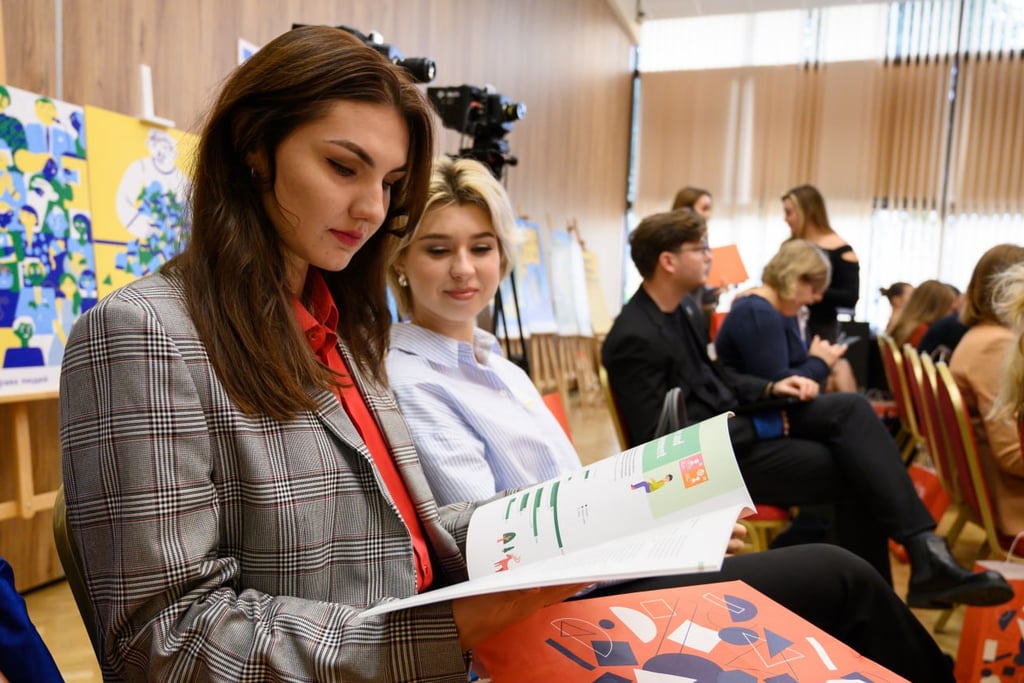

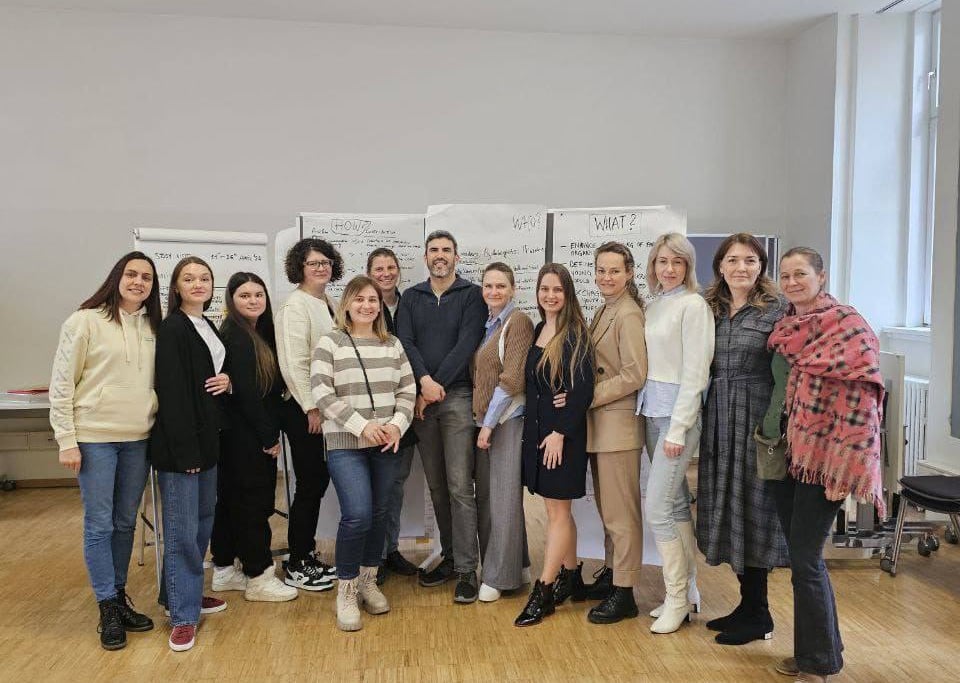

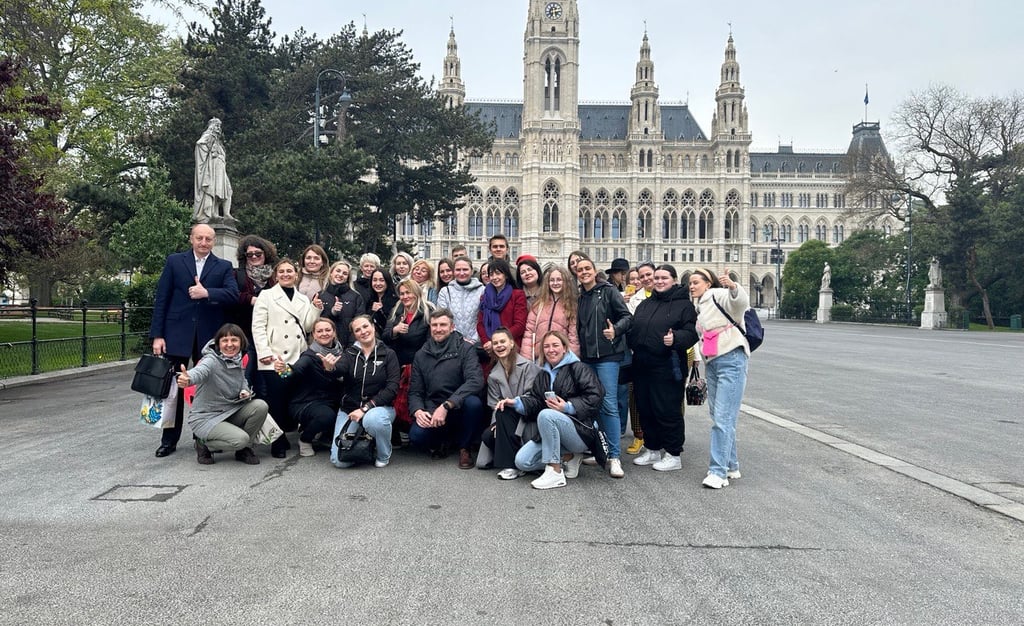

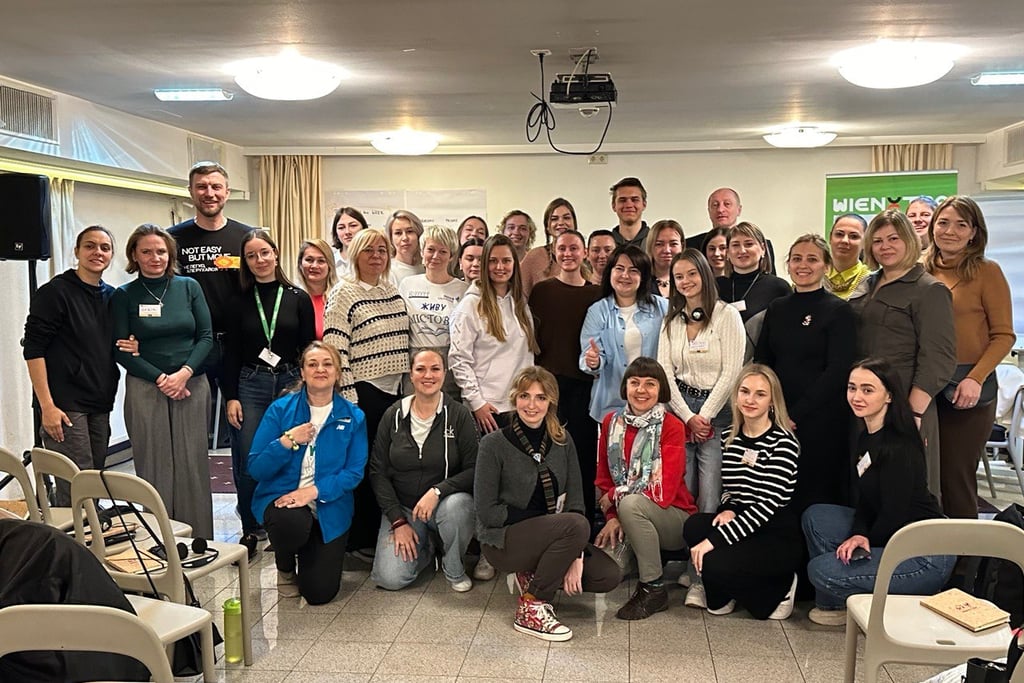

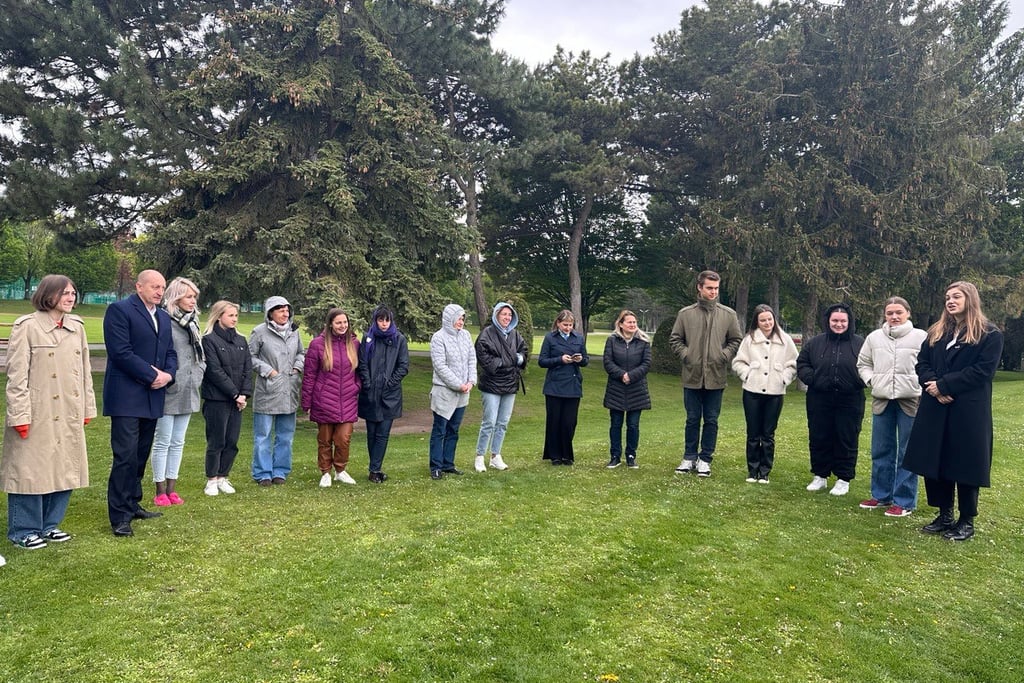

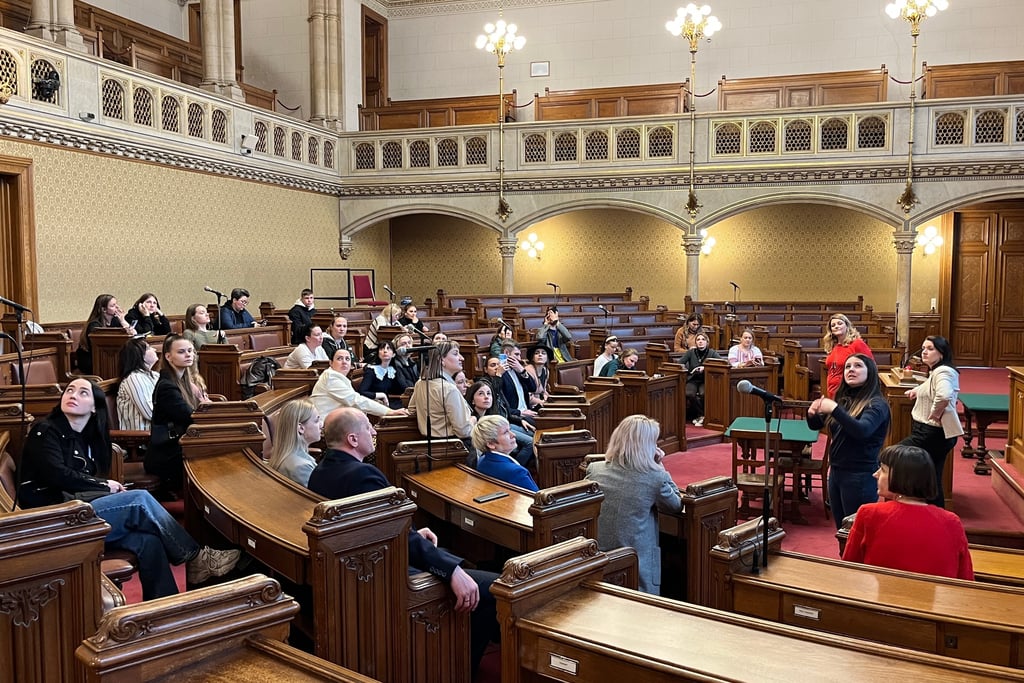



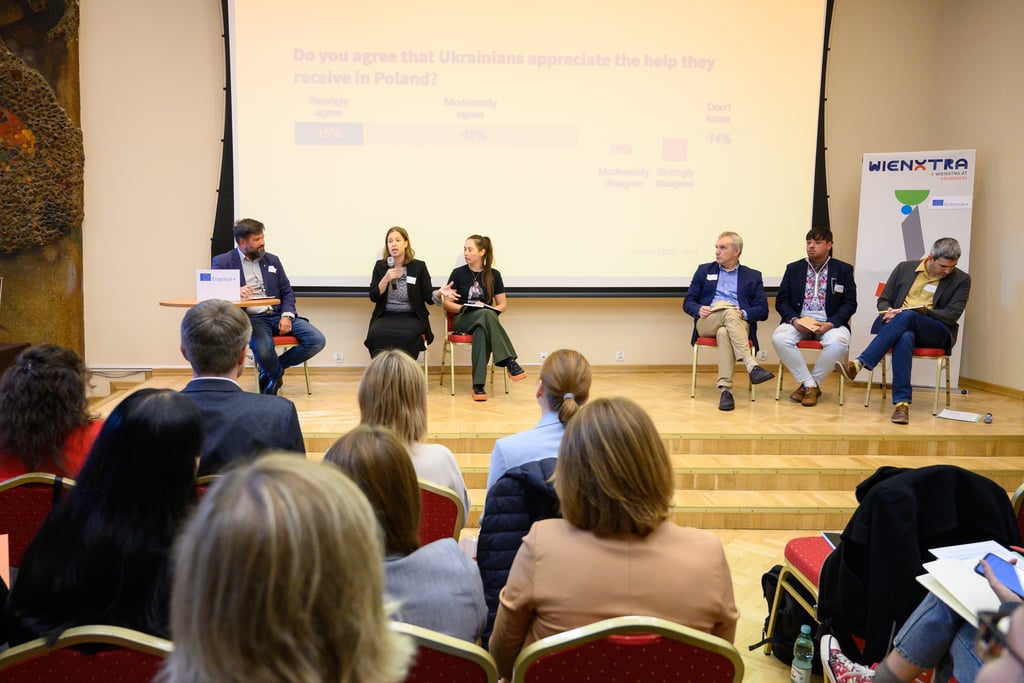

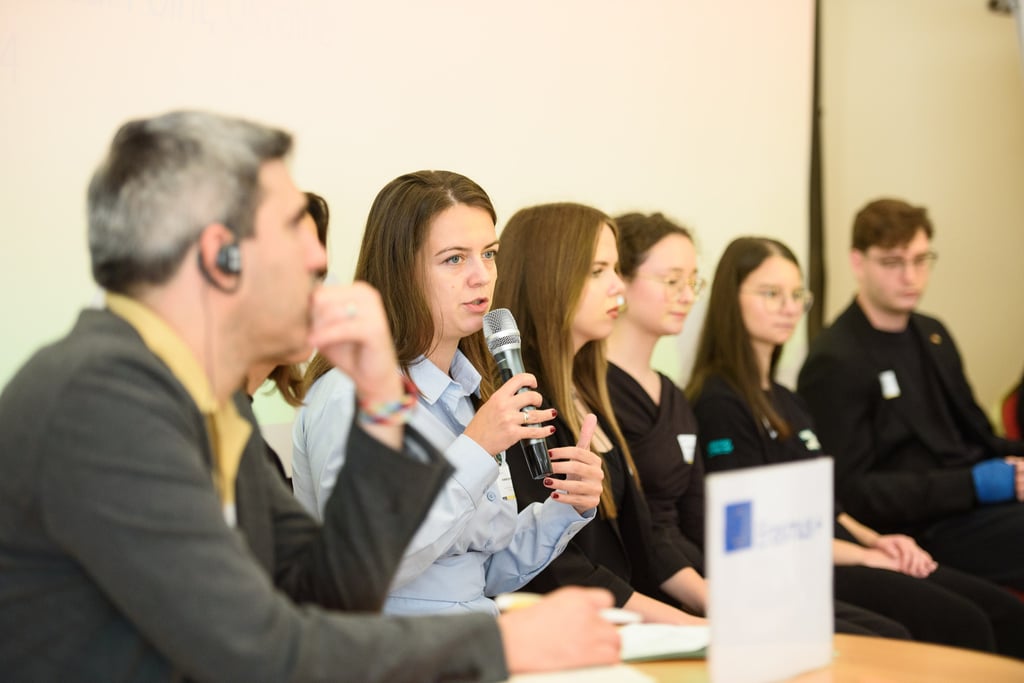





info@eucfi.org
+43 660 9604942


The European Centre for Freedom and Independence
